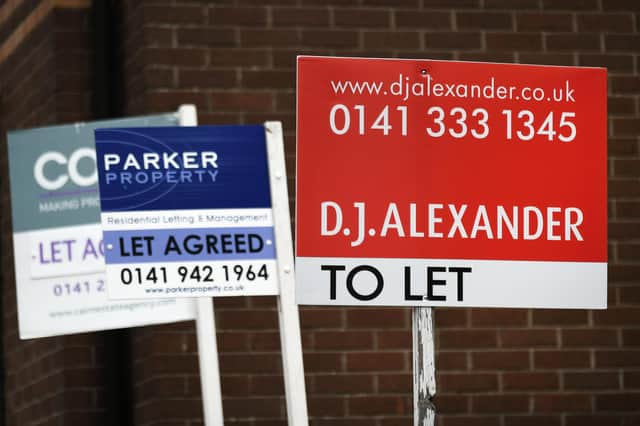Coronavirus: The shifting foundations of the lettings industry - David Alexander


But in terms of after-effects, it is likely to be much greater than that; a more apt comparison could well be 1918 and 1945 put together, dates that marked the respective ends of the First an Second World Wars.
Each conflict resulted in huge change to societies and economies – and not in the way everyone expected, either. In the immediate aftermath of the First World War, this country experienced a consumer boom as people stocked up on minor luxuries denied them since 1914. But once this had exhausted itself, mass unemployment enthused and continued for the next two decades – indeed until the start of another world war.
Advertisement
Hide AdAdvertisement
Hide AdUnderstandably, people feared similar levels of unemployment would return after 1945; not only did this not happen, but the 1950s were characterised by a steep rise in consumer spending that has continued – on and off – until the present day.
Quite how the after effects of the present crisis will pan out is impossible to tell – but it is already becoming a game-changer within the residential property arena.
Inundated
In the past few weeks, it’s become fashionable to talk about various sectors of commerce “falling off a cliff,” which has turned out to be an appropriate term for the short-stay lettings sector operated by Airbnb and similar organisations. “Inundated with enquiries” is an over-egged piece of hyperbole used by various consumer-related businesses but there is no other way to describe the number of calls to our office (and no doubt to those of other managing agents) by Airbnb-related landlords seeking to return their properties to the conventional, longer-term rental market.
Most spring and early summer bookings have been cancelled and last week’s announcement that the Edinburgh Festival and Fringe will not take place this year has added to the blow. And as things stand at present, the prospect of many would-be tourists making bookings for autumn in Scotland must also be in some doubt.
While some landlords are likely to return to leisure lettings eventually, it seems more likely a majority will stick with the conventional market. Not just because of the “shock to the system” caused by the fallout from the virus, but also because they might appreciate that, while perhaps not as remunerative in net terms, longer-term lettings involve less hassle, less wear and tear, and remove the fear of a fiscal crackdown by the authorities.
It then goes without saying that all those “holiday” flats returning to the mainstream sector is good news for conventional tenants as an increase in stock inevitably leads to a decrease, or at least a stalling, in rental levels. That’s not to say conventional landlords have not had a tough time.
Just like firms who have still been paying employees for whom there is no work, so landlords have had to take cuts in rents and in some cases go without any rental income at all. The hope is that tenants will eventually repay the money owed once life returns to normal – but for some it never will and on the basis that you cannot get blood from a stone, it seems inevitable that a certain number of landlords will simply have to write off some of that debt.
I only hope the various financial reliefs promised to businesses by governments will also apply to lettings in some form. It will be said that as landlords have a saleable capital asset, the rules should not apply to them. However, forcing some to sell risks creating an unhelpful reduction in privately-rented stock, which will be bad for society and the economy.
Advertisement
Hide AdAdvertisement
Hide AdFor example, a rental is often the preferred option for those making career moves – from relatively humble technicians to high-flying executives. And let’s not forget those who are stuck between not being able to afford a mortgage and not qualifying for social housing and for whom private renting is a necessity.
David Alexander is MD of DJ Alexander
A message from the Editor:
Thank you for reading this story on our website. While I have your attention, I also have an important request to make of you.With the coronavirus lockdown having a major impact on many of our advertisers - and consequently the revenue we receive - we are more reliant than ever on you taking out a digital subscription.Subscribe to scotsman.com and enjoy unlimited access to Scottish news and information online and on our app. With a digital subscription, you can read more than five articles, see fewer ads, enjoy faster load times, and get access to exclusive newsletters and content. Visit www.scotsman.com/subscriptions now to sign up.
Our journalism costs money and we rely on advertising, print and digital revenues to help to support them. By supporting us, we are able to support you in providing trusted, fact-checked content for this website.
Frank O'Donnell
Editorial Director
